
Ford Focus Estate Review

Introduction
Taking one of the UK’s best-loved family hatchbacks and making it even more spacious sounds like a licence to print money. So that’s exactly what Ford did when it launched the new Focus, a car that has won hearts and minds across the nation, becoming one of the most popular cars you can lease. The Estate version gives you much more boot space in exchange for very little – it doesn’t even damage the design that much.
That means you get all the qualities that made the Focus so popular. The Estate is great to drive, solidly built and packed with modern technology, as well as great engines, good gearboxes and ample space. The boot space was an Achilles heel for the hatchback, but the Estate goes some way towards rectifying that issue. The result is a car that appeals to pretty much anyone.
Select's rating score* - 4.0 / 5
At a Glance
A more practical version of the Focus we all know and love, the Focus Estate makes perfect sense on paper. And thanks to Ford’s design witchcraft, it barely looks any different to the five-door hatch on which it is based. Which means there’s essentially no price to pay for the extra boot space. Except for the slightly increased asking price, of course.... But then that’s why you lease.
Aside from the extra boot space, the Focus Estate is little different to its shorter, less spacious sibling. It has the same fantastic blend of handling and comfort that makes the normal Focus so appealing, and it has the same amount of technology and exactly the same futuristic yet easy-to-navigate interior.
In short, the estate body only adds to the Focus’s appeal, giving an already brilliant family hatchback more space and more flexibility. Of course, the Focus has its weaknesses relative to other models, but it has been successful nonetheless, and the Estate is arguably its most formidable form.
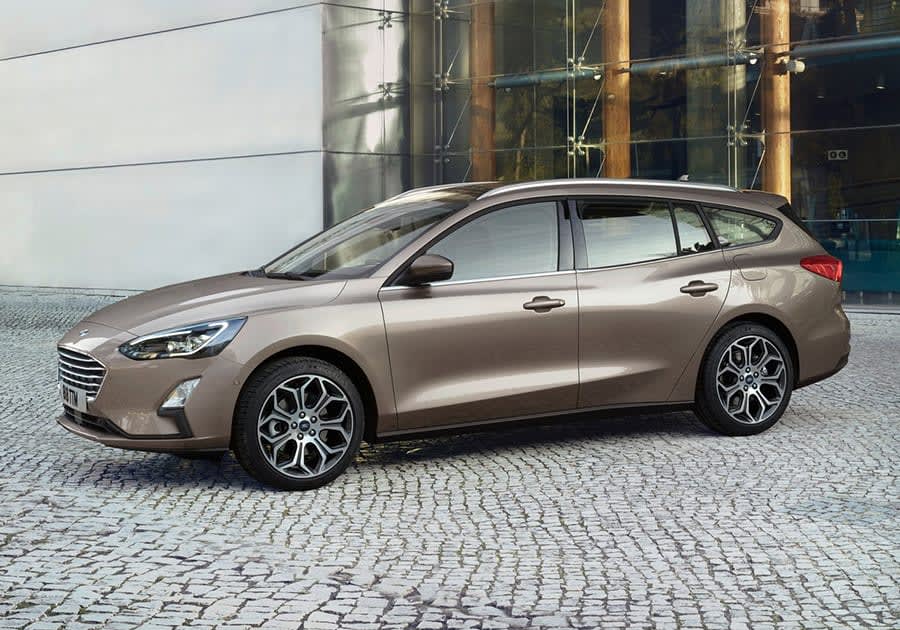
Key Features
It isn’t technically a part of the car, but the FordPass Connect app is perhaps one of the Focus’s best features. Yes, plenty of companies are offering such technology these days, but the Focus benefits from an intuitive smartphone application that provides you with vehicle health updates and allows you to access vehicle features.
Should you forget where you’ve parked, become unsure of whether you locked the doors or feel the need to check the fuel level, the app has got you covered. If you tend to forget such routine things, it’s going to be a godsend.
It’s also worth noting the Estate version of the Focus comes with an adjustable boot floor, which lets you change the height for easier loading, or hide valuables under the false floor, giving an extra level of security. It’s a small thing, but one that comes in more useful than you might imagine.
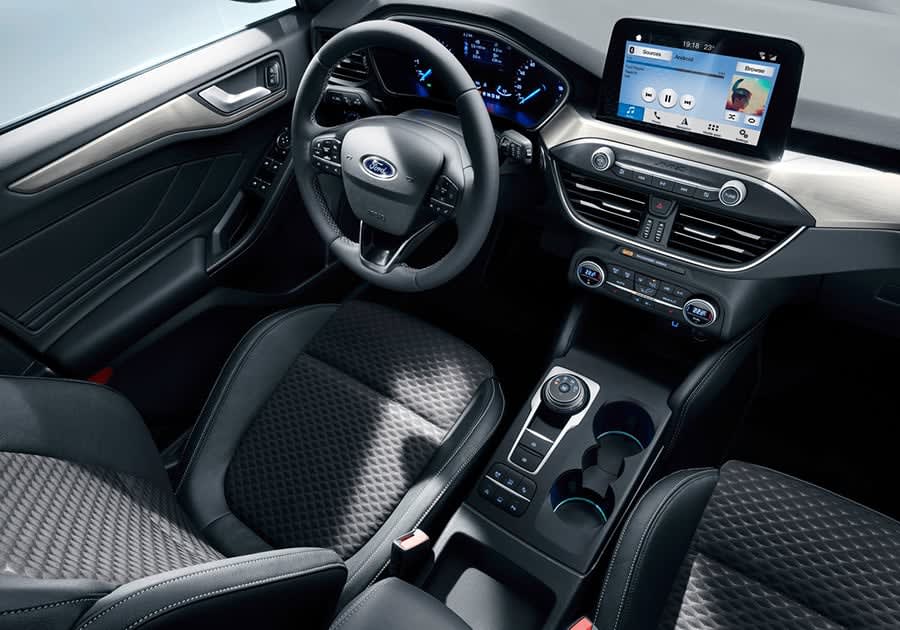
Performance & Drive
The Focus’s character will largely be defined by your choice of engine. And the choices on offer are broad to say the least. The range kicks off with the 1.0-litre, 125hp EcoBoost engine, which is much more potent than its diminutive size might suggest. A cleverly engineered three-cylinder turbocharged motor that’s offered with a choice of manual and automatic gearboxes, it will get the Focus Estate from 0-62mph in a respectable, if not particularly remarkable 10.8 seconds.
Alternatively, you can have that engine with the benefit of mild-hybrid power. It isn’t quite as electrically assisted as the Toyota Prius, but it essentially uses a generator to harvest power normally lost under braking or deceleration, then uses it to help out when the engine is under load. That doesn’t increase the engine’s power output – you still get 125hp – but it does improve economy by around 10%.
Then there’s the more powerful 155hp EcoBoost engine, which also uses mild-hybrid power to offer similar economy to its less powerful sibling. However, the extra power means it will cut the 0-62mph time to 9.4 seconds.
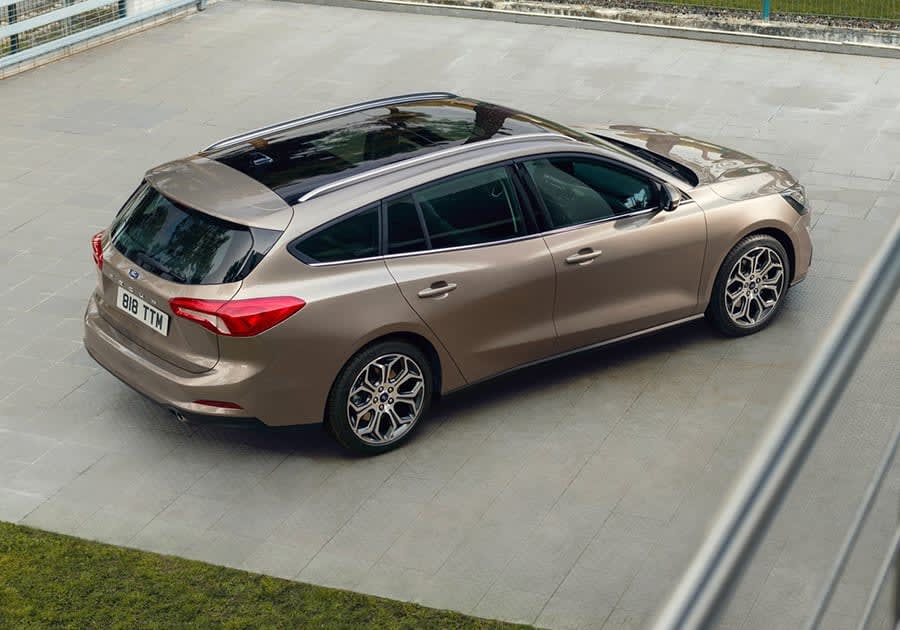
If you want to go fast, though, there’s only one engine for you. It’s the 2.3-litre EcoBoost petrol you find in the ST model, and it will take the car from 0-62 mph in 5.8 seconds. The top speed is a heady 155mph.
At the opposite end of the scale is the 1.5-litre diesel engine, which comes with 120hp and a six-speed manual gearbox as standard. It’s the economy-orientated engine in the range, but it feels punchier than its 10.3-second 0-62mph time might suggest. If you want the automatic gearbox, however, it will become slightly more sluggish.
A better blend of performance and economy can be had from the two 2.0-litre EcoBlue diesel engines. The lowlier of the two offers 150hp and comes with a choice of manual and automatic gearboxes, allowing it to manage the 0-62mph dash in around nine seconds. The 190hp flagship, meanwhile, is only available in the ST model, and it cuts that time to a very respectable 7.7 seconds.
In truth, though, it doesn’t matter which engine you choose: the Focus will be a great car to drive. Yes, the ST and, to a lesser extent, the ST-Line versions are the most agile and the least comfortable, but even the basic diesel is a peach on the road. It’s beautifully balanced, it darts into corners with just a hint from the steering wheel and it changes direction like a flea. It’s brilliant.
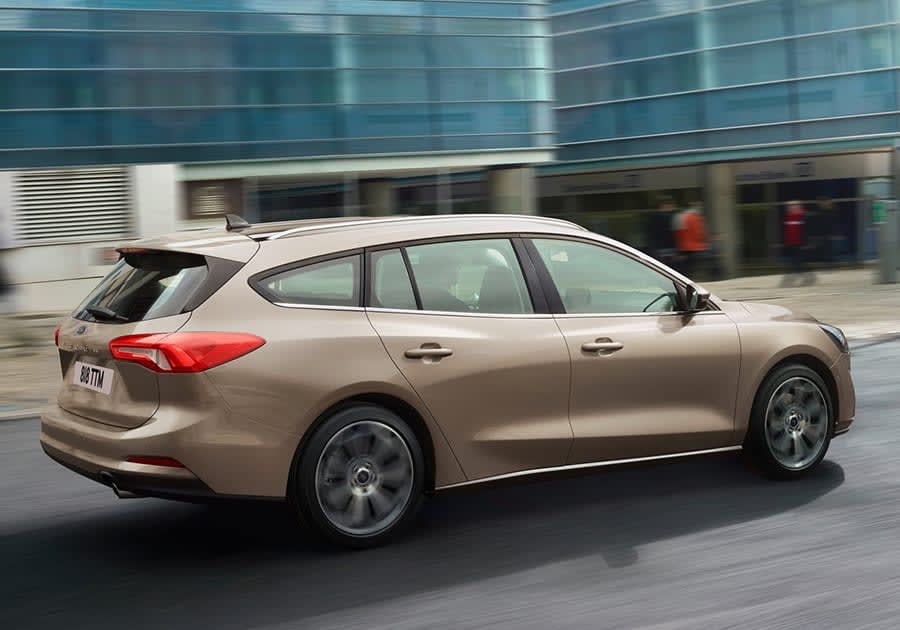
In fact, there’s an argument to say the Zetec Edition, Titanium Edition and Titanium X Edition models are the best, because they offer 95% of the sportier cars’ thrills, but with better ride comfort. For all the Focus’s agility, it’s still comfortable and cosseting on a motorway slog.
But the engine will impact how soulful your Focus is. The diesels are potent enough, but they don’t have the vivacity of the petrol engines. The 1.5-litre engine in particular feels very economy-orientated, although you’d never call it slow. The 2.0-litre diesels are the best compromise, while the 155hp EcoBoost engine also provides relatively stirring performance.
In short, they’re all great. Pay your money and take your choice. Oh, and the manual gearboxes are brilliant, so don’t be disheartened if an automatic stretches your budget too tight.
Running Costs & Emissions
For the cost-conscious among you, the diesel versions of the Focus will be the most appealing. The 1.5-litre EcoBlue engine may be surprisingly punchy, but it’ll still achieve around 60mpg on a long run. With an absence of plug-in hybrid or electric options, that’s going to be the engine of choice for many customers.
However, the 1.0-litre mild-hybrid petrol engines shouldn’t be discounted. For those doing shorter journeys, the 1.0-litre EcoBoost mild-hybrids can manage almost 50mpg if the conditions are right, and that’s not to be sniffed at.
Company car drivers will probably want to steer clear of the Focus in favour of plug-in hybrid or even electric options that offer significantly lower tax bills. However, the 120hp diesel engines will keep your bills in check. With emissions of 112g/km for a base-spec Zetec Edition Estate, the Ford slots neatly into the 26% tax bracket for 2021/22.
Interior & Technology
Ford interiors look thoroughly modern and come with plenty of tech, but there’s no denying that Skoda, Seat and Volkswagen now do it better. The Focus looks and feels fairly solid, but it doesn’t quite have the precision feel of one of the VW Group cars. Nevertheless, it’s still much more reassuring than some of the French brands, or indeed a few from Japan. You know a Toyota will last the course, but the plastics don’t inspire as much confidence as those in the Focus.
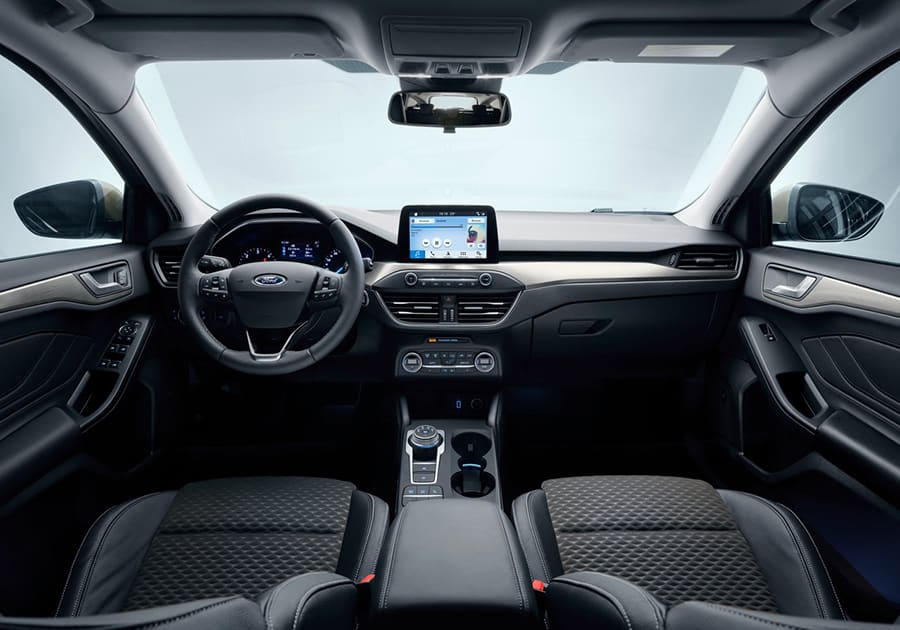
From a technology standpoint, though, Ford is up there with the best of them. Partly because the Blue Oval hasn’t decided to introduce tech for tech’s sake. The climate control dials are physical dials below the touchscreen, and that makes them easy to access, easy to use and generally better than those hidden away inside some touch-sensitive menu. Are you listening, Volkswagen?
And although Ford’s technology doesn’t always look that brilliant, there’s no knocking its functionality. The Sync 3 touchscreen is a huge improvement on the old Sync 2 unit, with big on-screen ‘buttons’ that are easier to use on the move and a clear, high-definition display. The digital instrument cluster is similarly competent.
All of which puts the Focus up there with the best of them, albeit in its own, slightly unique way. When so many manufacturers are trying to reinvent the wheel, Ford simply refines the existing concept. Although having said that, the steering wheel itself is a bit fiddly and button heavy.
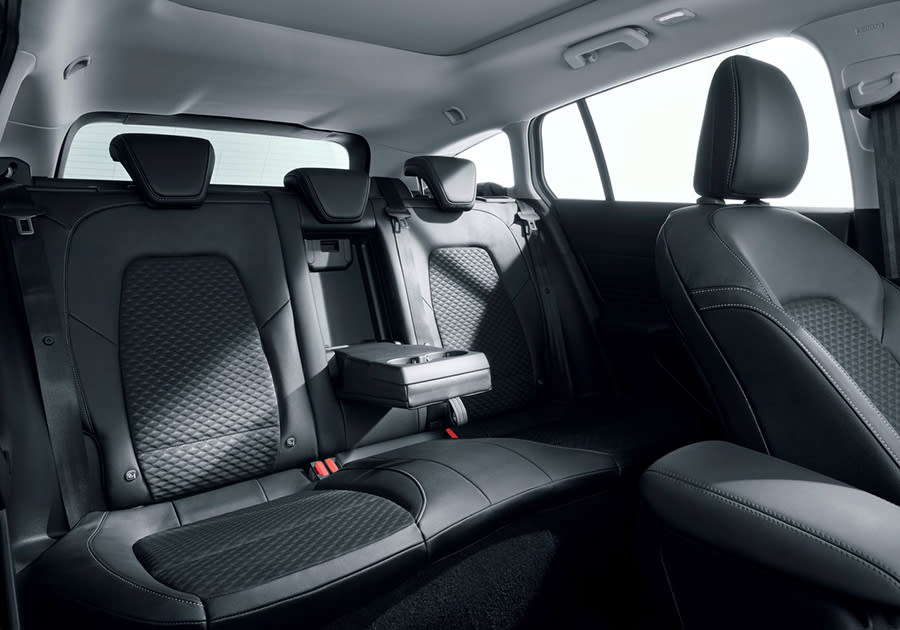
Practicality & Boot Space
If the standard Focus hatchback has a weakness, it’s luggage space. The boot is much bigger than in the previous-generation car, but it’s still slightly smaller than that of the VW Golf or Seat Leon. The Focus Estate, however, has no such issue. With 575 litres of load-carrying capacity before you even fold the seats down or load it above the tonneau cover, it has more than enough capacity. In fact, it has more space than the standard Mondeo hatchback.
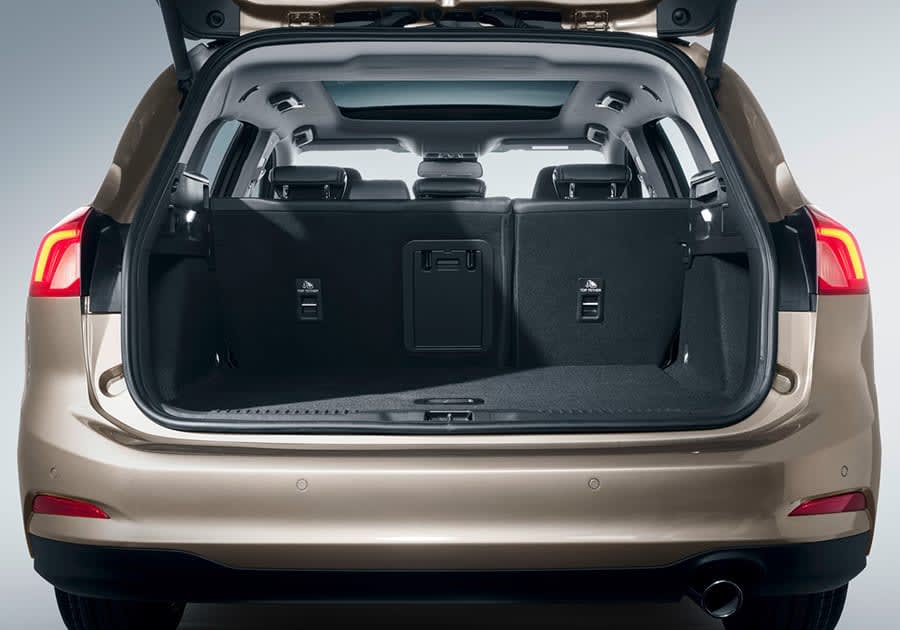
That means you’ll have no trouble putting golf clubs or sports equipment in there, and a family’s holiday luggage will be easily swallowed. Better still, there’s no lip to heave heavy items over, making it even more simple to load. Simply slide them into place. And if you fold the back seats down and fill the car to the roof lining, you’ll find you almost treble the amount of space on offer.
But the best bit about the current-generation Focus Estate is its rear legroom. Passengers will have acres of space back there, with fully grown adults able to travel in comfort on even the longest journeys. Of course, in a family wagon, it’s kids who will spend most of their time in the back, and they’ll find it more than adequate. Whether that’s enough to stop them complaining rather depends on the kids, really...
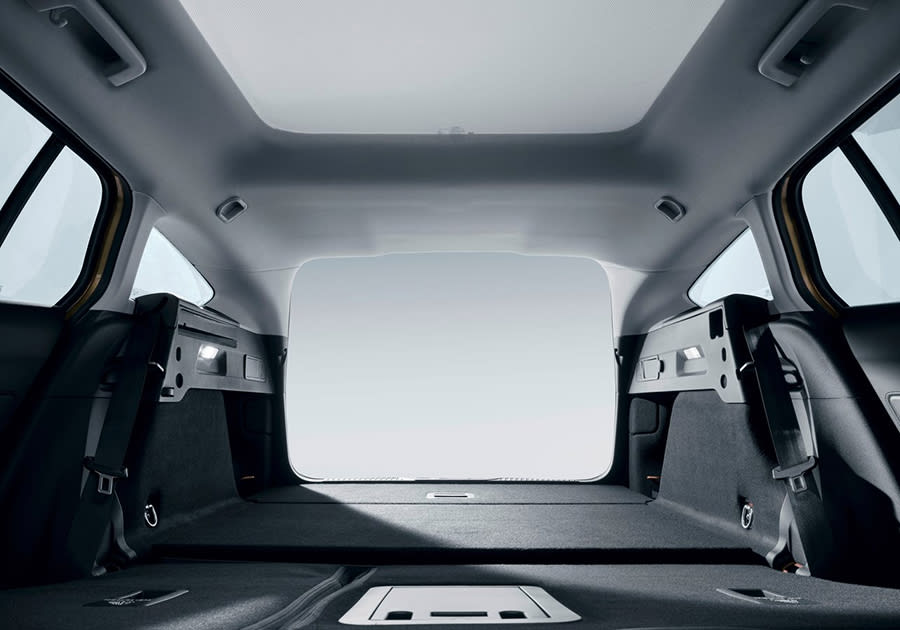
Safety
The Ford Focus is an incredibly safe car, as its Euro NCAP crash test rating shows. Not only did the mid-range Ford achieve an impressive five-star score, but it also managed an amazing 96% rating for adult occupant protection. Strong, if not quite so amazing, scores elsewhere in the test secured it the full five stars. So should the worst happen, you know the humble Ford will keep you as safe as can be.
But hopefully things will never get that far, and Ford has fitted plenty of gadgets to make sure that’s the case. All versions come with autonomous emergency braking technology, which will stop the car if it senses an impending collision and the driver does not respond, while front and rear parking sensors are also standard on all models.
Lane-keeping tech and cruise control are also included on all trim levels, but you can add gizmos such as blind-spot monitoring, which tells you when there’s a car in the hard-to-see areas over your shoulders.
Options
Focus customers get a wide choice of trim levels and a kind of fork-shaped model ladder, giving you the chance to pick from one of three different routes. In essence, after the base model, you get to decide whether you want a sporty Focus, a rugged Focus or a luxurious Focus, then go from there.
But you may well decide the entry-level Zetec Edition car is enough for you. That car comes with 16-inch alloy wheels, LED headlights and a touchscreen infotainment system, not to mention a heated windscreen, air conditioning and the Apple CarPlay and Android Auto smartphone integration technology. It might not be everything you want, but it has everything you need.
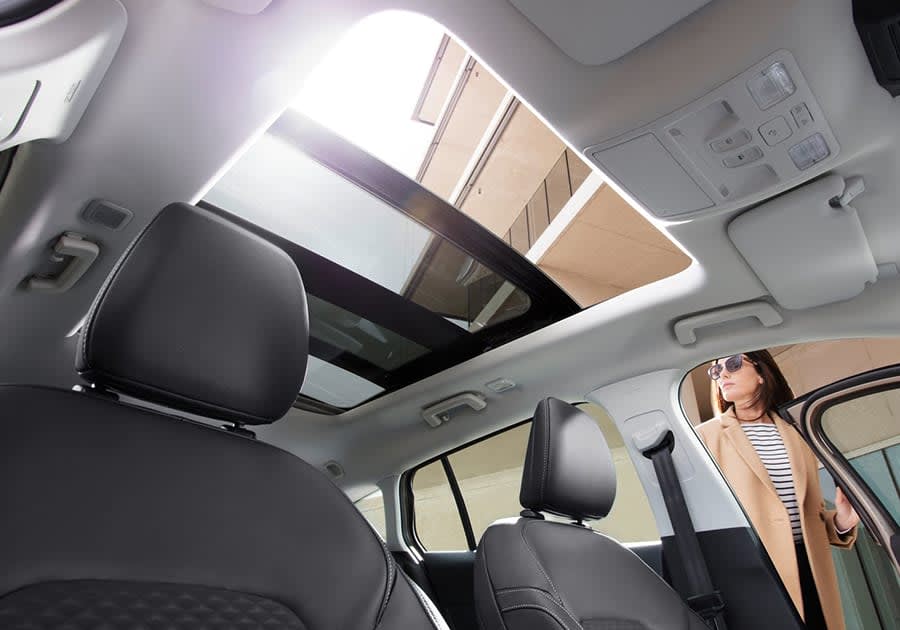
If you want more, you have to make a choice between the more luxury-orientated models and the sportier variants. Go down the luxury route and you’ll come to the Titanium Edition, which adds to the Zetec Edition with climate control and satellite navigation, as well as keyless entry and engine start and heated front seats. For even more equipment, you’ll need the Titanium X Edition, which comes with larger 17-inch alloy wheels, part-leather upholstery and rear privacy glass, plus a digital instrument cluster, heated front seats and a heated steering wheel.
But if you’re more into the rough-and-tumble kind of vibe, you can instead choose to upgrade from Zetec Edition to the Active Edition. You get a raised ride height and body cladding, as well as larger 17-inch alloy wheels. As with the Titanium Edition, you get keyless entry and satellite navigation, but you miss out on the electronic climate control. If that’s a must, you’ll need the Active X Edition, which is marked out by its 18-inch alloys, part leather upholstery and heated seats. It also throws in a heated steering wheel and a panoramic glass roof.
Alternatively, you can go down the sporty route and get yourself one of the ST-Line versions. As with the Titanium and the Active, you get a choice of the ST-Line Edition or the ST-Line X Edition. The former comes with 17-inch alloy wheels, sporty body styling and sports suspension, as well as satellite navigation, keyless entry and keyless start. The latter, meanwhile, gets you 18-inch alloy wheels, a digital instrument cluster and part-leather seats. Those seats are also heated, and the ST-Line X Edition comes with a heated steering wheel and climate control, too.
If you want to push the sportiness up to 11, opt for the full-blown ST models. Not only do they come with sporty styling, but they get the performance to match, and there’s plenty of standard kit. ST-specific sports suspension, a B&O premium sound system and a rear-view camera are all included, alongside all the ST-Line X Edition’s equipment.
As you might expect from Ford, there are plenty of paint colours and optional extras to choose from, but the standard equipment is enough for most. The colour palette is appealing, though, and you get bright red paint as standard. Alternatively, you can spend a little more on the usual array of blacks, whites and greys, or opt for one of the more lustrous blues and reds.
Rival Cars
The Focus Estate’s direct rivals are less numerous than those of its hatchback sibling – primarily because the market for estate cars of this size is somewhat smaller. But key players remain, including the Ford’s constant nemesis, the Volkswagen Golf Estate. Blessed with more boot space and better build quality, the VW is a formidable foe – especially for those whose heads rule their hearts. However, the Focus is the more engaging car to drive and it comes with some brilliant engines. Choosing between the two is purely down to taste.
Elsewhere in the market, the new Seat Leon is also a force to be reckoned with, providing style and substance in equal measure, while the Renault Megane is much more of a fashion-focussed alternative. At the opposite end of the scale, the Vauxhall Astra Sports Tourer feels much more down-to-earth, while the Toyota Corolla Sports Tourer provides the efficiency of hybrid power.
Other alternatives include the new-look Peugeot 308 SW, which is arguably the best-looking car in this class, or the super-spacious Skoda Octavia Estate. Bigger than its competitors and much more capacious, the Octavia is a practical and keenly priced option in this segment. But if you really want to be left-field, why not try the Suzuki Swace? Essentially a Corolla Sports Tourer in drag, the Suzuki is a very capable hybrid estate car.
Verdict & Next Steps
Adding extra practicality to the Focus’s already appealing blend of qualities can only be a good thing. That Ford has managed to do so without spoiling the car’s handsome image is an added bonus, and one that gives it an edge over its rivals. This is arguably the best iteration of the Focus, and while it won’t be for everyone – some will prefer the more solidly built Volkswagen Golf – it remains a very worthy contender. Especially for those who love to drive.
Where to next?
View latest Ford Focus Estate leasing deals - guide price from £200.05 per month inc VAT**
Looking for a great deal? Check out our incredible range of car lease deals
New Estate? Read our latest Reviews and find the right model for you
Want to know more about leasing? Take a look at our comprehensive Leasing Guides
Interested in everything motoring? Why not catch up on all the latest Car Leasing News.
*Score based on Select’s unique meta score analysis, taking into account the UK’s top five leading independent car website reviews of the Ford Focus Estate
**Correct as of 14/10/2021. Based on 9 months initial payment, 5,000 miles over a 48 month lease. Initial payment equivalent to 9 monthly payments or £1,800.47 - Ts and Cs apply. Credit is subject to status.





















